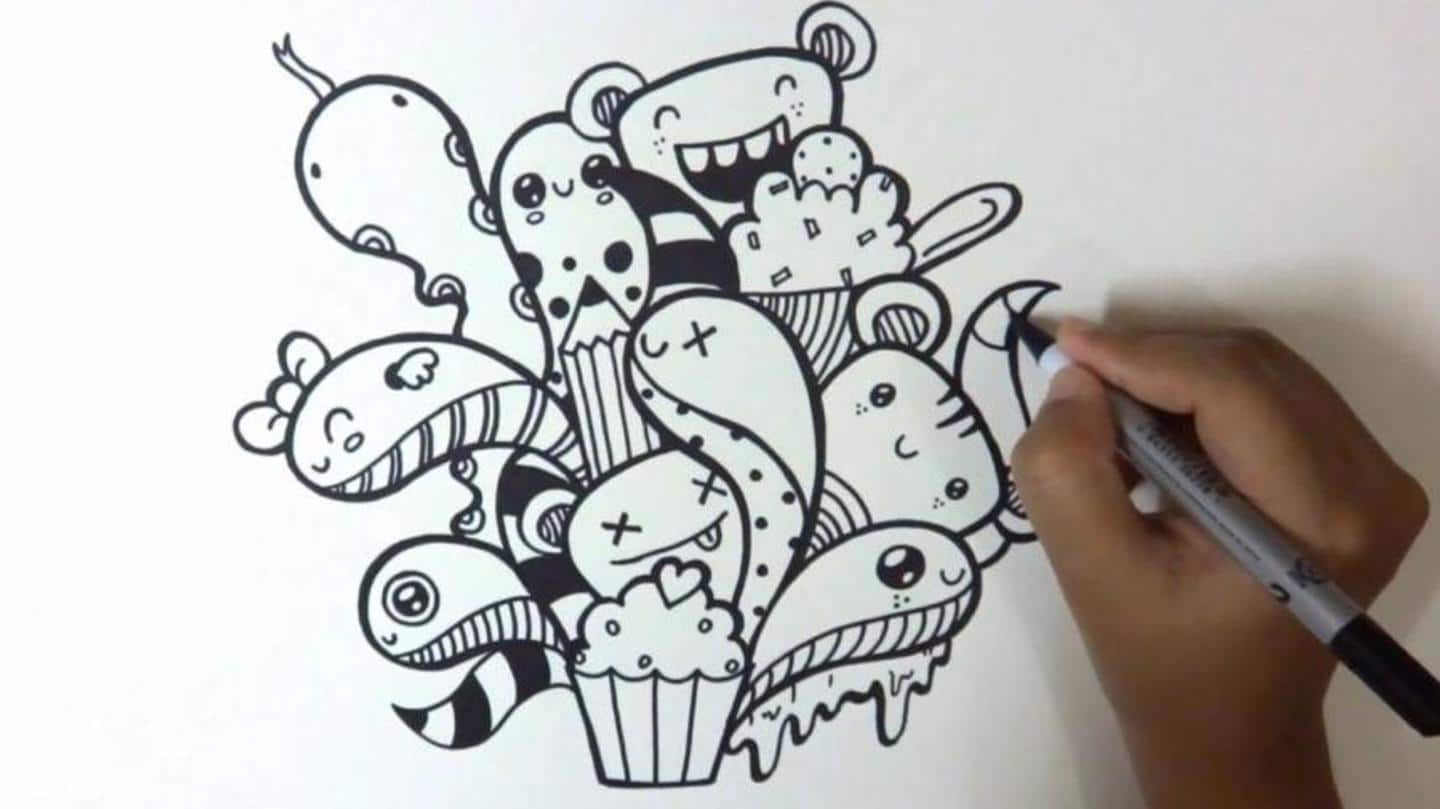
#HealthBytes: Surprising reasons why doodling is good for you
What's the story
Do you get carried away by thoughts and scribble random stuff on your notebook while attending a meeting or a lecture?
Guess what? Those mere scribblings have a host of cognitive and emotional benefits, that you are oblivious of.
Called doodles, they can be spontaneous, abstract patterns or detailed designs and meaningful images.
If you doodle, here's what it does for your health.
Stress
Lowers the cortisol levels in the body and relieves stress
Studies prove that doodling of any kind, i.e., representational or "mere" scribbling helps in lowering the levels of the stress hormone, cortisol, in the body, thereby making a person feel more relaxed.
If you feel stressed out on a regular basis, you can start doodling on your rough notebook.
For a more organized approach, buy a coloring book and get started to reduce stress.
Concentration
A study showed doodling helps in improving concentration
A study conducted in 2009 showed that participants who performed a shape-shading task while listening to a mock telephone message were able to recall the message better than participants who did not doodle at all.
It was thus concluded that doodling helps improve concentration by keeping participants awake during boring activities, without giving in to the total distraction of daydreaming.
Thinking
Overanalyzing something? Relax and doodle; you may get your solution
There are two types of thinking: focused thinking and diffused thinking, and both come with their share of benefits.
When an individual is focused on finding a solution, it's called focused thinking, while diffused thinking happens when the mind is more relaxed.
If you catch yourself overanalyzing a problem, simply relax and doodle, and voila! You may already have a solution to your problem.
Ideas
Any form of art, including doodling, helps generate creative ideas
Studies prove that any form of art, including doodling, helps to generate creative and fresh ideas.
It is believed that this is because doodling distracts us from consciously focusing on a particular situation, but subconsciously involves the mind to generate fresh and creative ideas.
However, researchers have failed to attribute proper reasoning to understand it even though this result is conclusive.